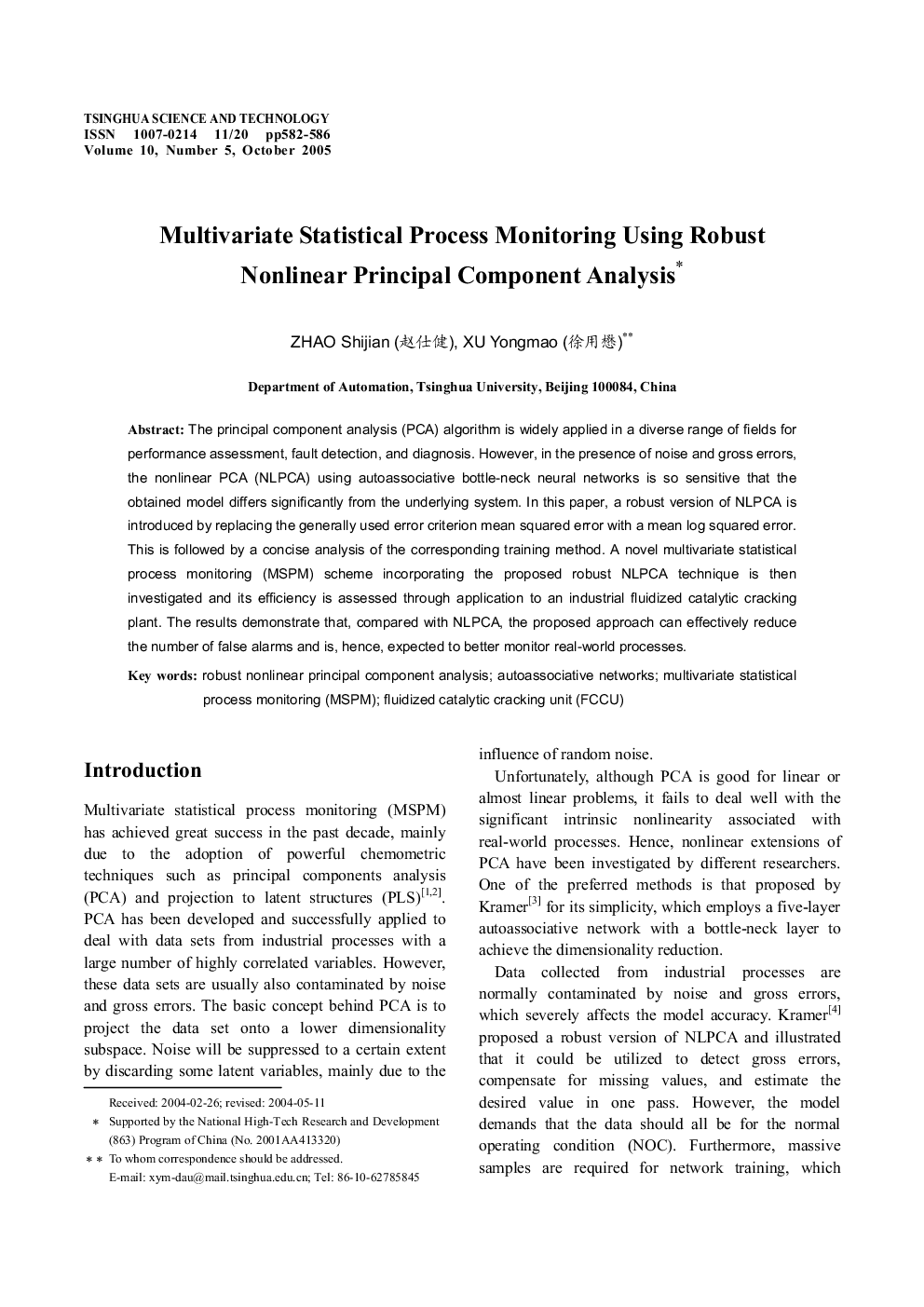| Article ID | Journal | Published Year | Pages | File Type |
|---|---|---|---|---|
| 10429180 | Tsinghua Science & Technology | 2005 | 5 Pages |
Abstract
The principal component analysis (PCA) algorithm is widely applied in a diverse range of fields for performance assessment, fault detection, and diagnosis. However, in the presence of noise and gross errors, the nonlinear PCA (NLPCA) using autoassociative bottle-neck neural networks is so sensitive that the obtained model differs significantly from the underlying system. In this paper, a robust version of NLPCA is introduced by replacing the generally used error criterion mean squared error with a mean log squared error. This is followed by a concise analysis of the corresponding training method. A novel multivariate statistical process monitoring (MSPM) scheme incorporating the proposed robust NLPCA technique is then investigated and its efficiency is assessed through application to an industrial fluidized catalytic cracking plant. The results demonstrate that, compared with NLPCA, the proposed approach can effectively reduce the number of false alarms and is, hence, expected to better monitor real-world processes.
Related Topics
Physical Sciences and Engineering
Engineering
Engineering (General)
Authors
Zhao (èµµä»å¥), Xu (å¾ç¨æ),
